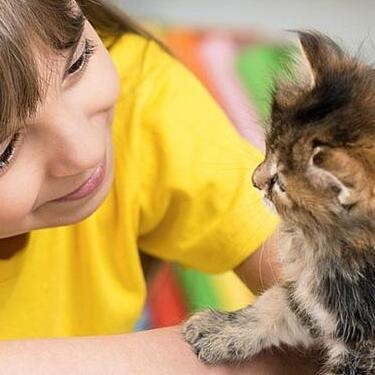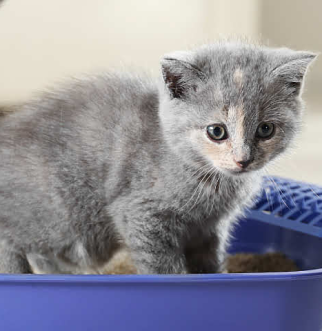
-
Find the right food for your pet
Take this quiz to see which food may be the best for your furry friend.
Find the right food for your pet
Take this quiz to see which food may be the best for your furry friend.
Featured products
 Adult 7+ Perfect Digestion Chicken, Whole Oats & Brown Rice Recipe Dog Food
Adult 7+ Perfect Digestion Chicken, Whole Oats & Brown Rice Recipe Dog FoodScience Diet's breakthrough nutrition supports ultimate digestive well-being & healthy microbiome for dogs age 7+
Shop Now Small & Mini Savory Stew with Chicken & Vegetables Dog Food
Small & Mini Savory Stew with Chicken & Vegetables Dog FoodA delicious complement to the nutrition of Science Diet Small & Mini 7+ dog food
Shop Now Adult Healthy Cuisine Roasted Chicken, Carrots & Spinach Stew Dog Food
Adult Healthy Cuisine Roasted Chicken, Carrots & Spinach Stew Dog FoodDelicious roasted chicken paired with tender vegetables in a succulent stew
Shop NowFeatured products
 Adult Savory Entrée Can Variety Pack Cat Food
Adult Savory Entrée Can Variety Pack Cat FoodPrecisely balanced nutrition with the delicious taste of savory minced chicken to help fuel the energy needs of cats during the prime of their life
Shop Now Adult 7+ Senior Vitality Chicken & Vegetable Stew Cat Food
Adult 7+ Senior Vitality Chicken & Vegetable Stew Cat FoodImproves Everyday Ability to Get Up & Go
Shop Now Adult 7+ Tender Tuna Dinner Cat Food
Adult 7+ Tender Tuna Dinner Cat FoodWith delicious chunks in a decadent gravy
Shop Now -
Dog
- Dog Tips & Articles
-
Health Category
- Weight
- Food & Environmental Sensitivities
- Urinary
- Digestive
- Joint
- Kidney
-
Life Stage
- Puppy Nutrition
- Adult Nutrition
- Senior Nutrition
Cat
- Cat Tips & Articles
-
Health Category
- Weight
- Skin & Food Sensitivities
- Urinary
- Digestive
- Kidney
-
Life Stage
- Kitten Nutrition
- Adult Nutrition
Featured articles
 Why Are Dogs and Cats So Cute?
Why Are Dogs and Cats So Cute?If waggy puppy dog tails and furry kitten yawns make you swoon, you're not alone. Why are cats so cute? And, dogs too! Let's find out!
Read More Does My Pet Hate Me?
Does My Pet Hate Me?Learn tips for bonding with your pet if you've ever thought, 'My dog doesn't like me, or 'Why do I have a standoffish cat?'
Read More Do Dogs and Cats have Belly Buttons?
Do Dogs and Cats have Belly Buttons?Learn whether cats & dogs have belly buttons like humans, what the function is, and if there are any health concerns associated with it.
Read More -


While it takes years for young humans to lose all their baby teeth and wait for their adult chompers to come in, the kitten teething process moves much faster. In fact, by the time they're 6 months old, cats have already cycled through two sets of teeth.
Kitten Teething: An Age Timeline
A kitten's baby teeth, also known as milk or deciduous teeth, first break through when a cat is about 3 or 4 weeks old. The incisors and primary canines come in first, according to Pet Health Network, with the others following in quick succession.
These baby teeth all fall out by the age of 3 to 4 months, making room for the adult teeth to then pop up. Typically, all adult teeth are in place by the time a kitten is 6 months old. Most adult cats have 26 baby teeth and 30 adult teeth.
What Are the Signs of Kitten Teething?
During the kitten teething process, you may not even know that your feline friend is losing teeth until you see one on the floor or in their bed. This is normal, so don't worry! Most cats swallow their teeny teeth but, again, no need to fret — this doesn't cause any harm to a cat.
You also may notice these commons signs of kitten teething:
- Decreased appetite
- Excessive chewing
- Sore, red gums
- Slight bleeding of the gums
- Irritability
- Pawing at their mouth
The experts at the Tufts catnip, emphasizes the importance of looking for signs of gingivitis or periodontal disease, such as extremely swollen or bleeding gums and bad breath, as your kitty goes through the teething phase. Occasionally, kittens may have persistent deciduous teeth, meaning that some of their baby teeth did not fall out. This condition is rare but worth keeping an eye out for, as a tooth extraction may be necessary. Consult your veterinarian right away if you notice any of these symptoms so your cat companion can quickly get the treatment they need.
How to Help a Teething Kitten
Do kittens teethe with a lot of pain? There's bound to be physical discomfort when pointy teeth are poking through sensitive gums but, according to Greencross Vets, this discomfort is typically minimal.
Your kitten will, however, look for ways to relieve the soreness and irritation associated with teething. They may try to use you as a chew toy, which is never a good idea for either of you. Here, as with other acts of aggressive cat play, redirection is the way to go.


Tasty Tips
One safe option for a chew toy is a cold wet washcloth, which provides an outlet for excessive chewing and relieves some of the tenderness. Commercially available kitten chew toys are another option, including rubber or soft plastic-based toys that are easy to chew and toys that you can put in the refrigerator. To keep your kitty safe, you should stay with them while they play with it, always follow the toy's directions, keep an eye out for damage and immediately discard damaged toys.
Your kitty may try to chew on furniture legs or electrical cords. This behavior can be damaging to your belongings but, more importantly, may put your cat in harm's way. "To prevent accidental injury from destructive chewing, cover electrical cords and wires with protective plastic covers," advised experts at Your Cat. They also suggest placing double-sided tape on areas you want to protect from your kitten's razor-sharp teeth.
The Importance of Good Oral Hygiene for Kittens
Dental and gum diseases are common in cats but by investing in your kitty's oral health when they're young, you can help prevent some of these issues down the line.
For starters, establishing a dental care routine with regular checkups and teeth brushing — but after the teething cycle, to avoid additional discomfort — may keep health care costs down and issues like gingivitis, periodontitis and tooth resorption at bay. Teething kittens may prefer canned food or kibble soaked in water if their gums are sore. Once they reach adulthood you can consider feeding them cat food formulated to promote good oral health.
Your kitty may not handle the teething process well, so make sure you show them lots of love, support and patience as these new teeth settle in place.


One of our staff authors prepared this article for you
Related products
Related articles

What is the best food for an overweight cat? Learn all about weight control food for cats, including what's in it and how it works.

Discover how to train your cat, starting with very basic first steps that both reward good behavior and discourage the bad.

Cats are naturally very clean and chances are your kitten will already have learned how to use the litter box from her mother before she comes to live with you.

How do you get a cat to lose weight? Learn all about cat foods for weight loss, including how to choose weight control cat food and exercise tips.

Put your cat on a diet without them knowing
Our low calorie formula helps you control your cat's weight. It's packed with high-quality protein for building lean muscles, and made with purposeful ingredients for a flavorful, nutritious meal. Clinically proven antioxidants, Vitamin C+E, help promote a healthy immune system.
Put your cat on a diet without them knowing
Our low calorie formula helps you control your cat's weight. It's packed with high-quality protein for building lean muscles, and made with purposeful ingredients for a flavorful, nutritious meal. Clinically proven antioxidants, Vitamin C+E, help promote a healthy immune system.

